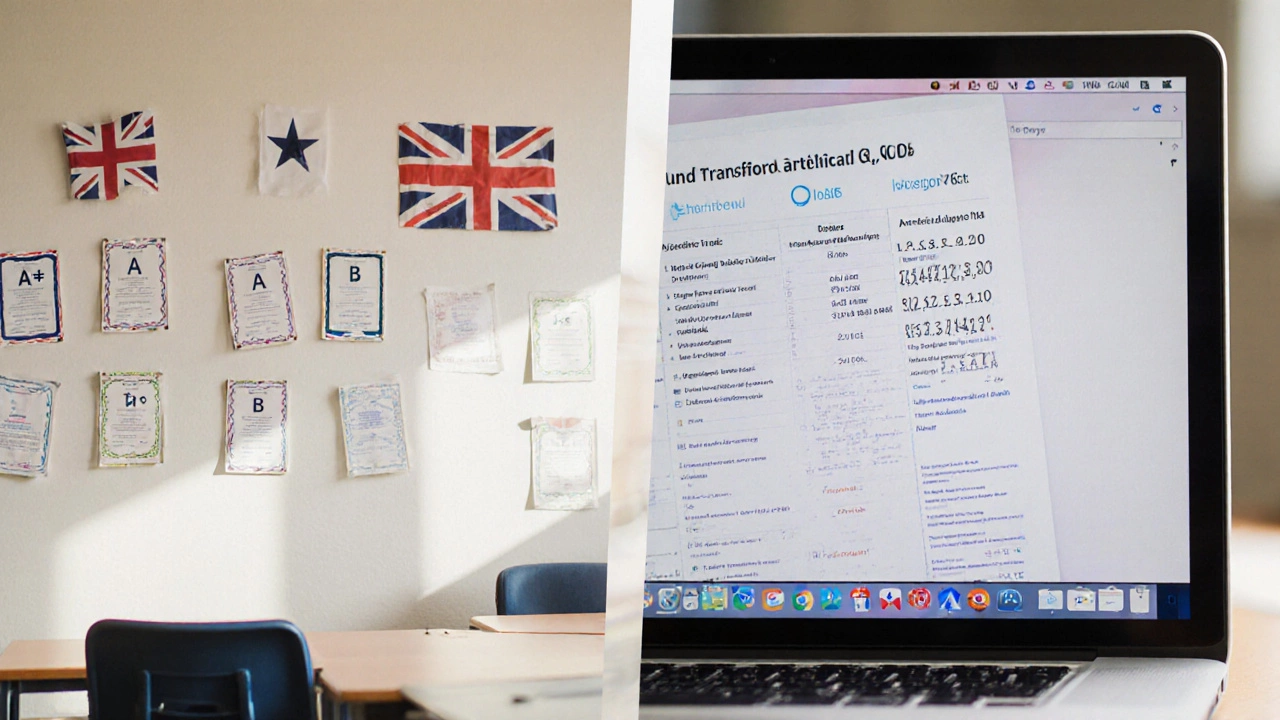A-level GPA: What It Really Means for UK University Admissions
When people talk about A-level GPA, a colloquial term used to describe the overall performance in A-level exams, often compared to GPA systems in the US. It's not an official metric in the UK — A-level grades are reported as A*, A, B, C, etc., not as a 4.0 scale. But if you're applying to universities — especially abroad — or trying to understand how your results stack up, this idea of an "A-level GPA" is how many students and parents make sense of it all. The truth? UK universities don’t use GPA. They use UCAS points, a standardized system that converts A-level grades into numerical values for university applications. An A* is worth 56 points, an A is 48, and so on. Your total UCAS tariff, not some imaginary GPA, is what gets counted.
So why does the term "A-level GPA" keep popping up? Because it’s a shortcut. If you’ve got three A*s, you’re roughly in the top 5% of applicants. That’s the kind of performance top universities like Oxford, Cambridge, or LSE look for. But here’s the thing: many students get into great schools with Bs and even Cs — especially if they’ve got strong personal statements, relevant work experience, or standout extracurriculars. UCAS points are just one part of the picture. A student with two A’s and a B in subjects like Biology, Chemistry, and Maths might be a stronger fit for medicine than someone with three A*s in less relevant subjects. It’s not just about the numbers — it’s about the context.
And let’s not forget the competition. While some universities list minimum entry requirements like ABB, others — especially for popular courses — end up accepting applicants with AAA or higher. That’s why so many students worry about getting that perfect grade. But the posts below show that it’s not about perfection. It’s about strategy. You’ll find real stories on how to turn average grades into scholarship wins, how to pick the right A-level subjects for your dream course, and why some students with lower grades still land top placements because they knew how to present themselves. You’ll also see how A-levels compare to the IB, what subjects are most valued by UK unis, and how to boost your profile even if your grades aren’t stellar.
There’s no magic formula. But there is a clear path. Whether you’re aiming for a top-tier university or just trying to make sense of what your grades mean, the information below cuts through the noise. No fluff. Just what actually moves the needle when it comes to getting into university in the UK — and beyond.
How Many B's Equal a 3.8 GPA in A-levels?
A-levels don't use GPA, so there's no exact number of B's that equals a 3.8 GPA. Learn how US universities convert A-level grades and what actually matters for admissions.
More
